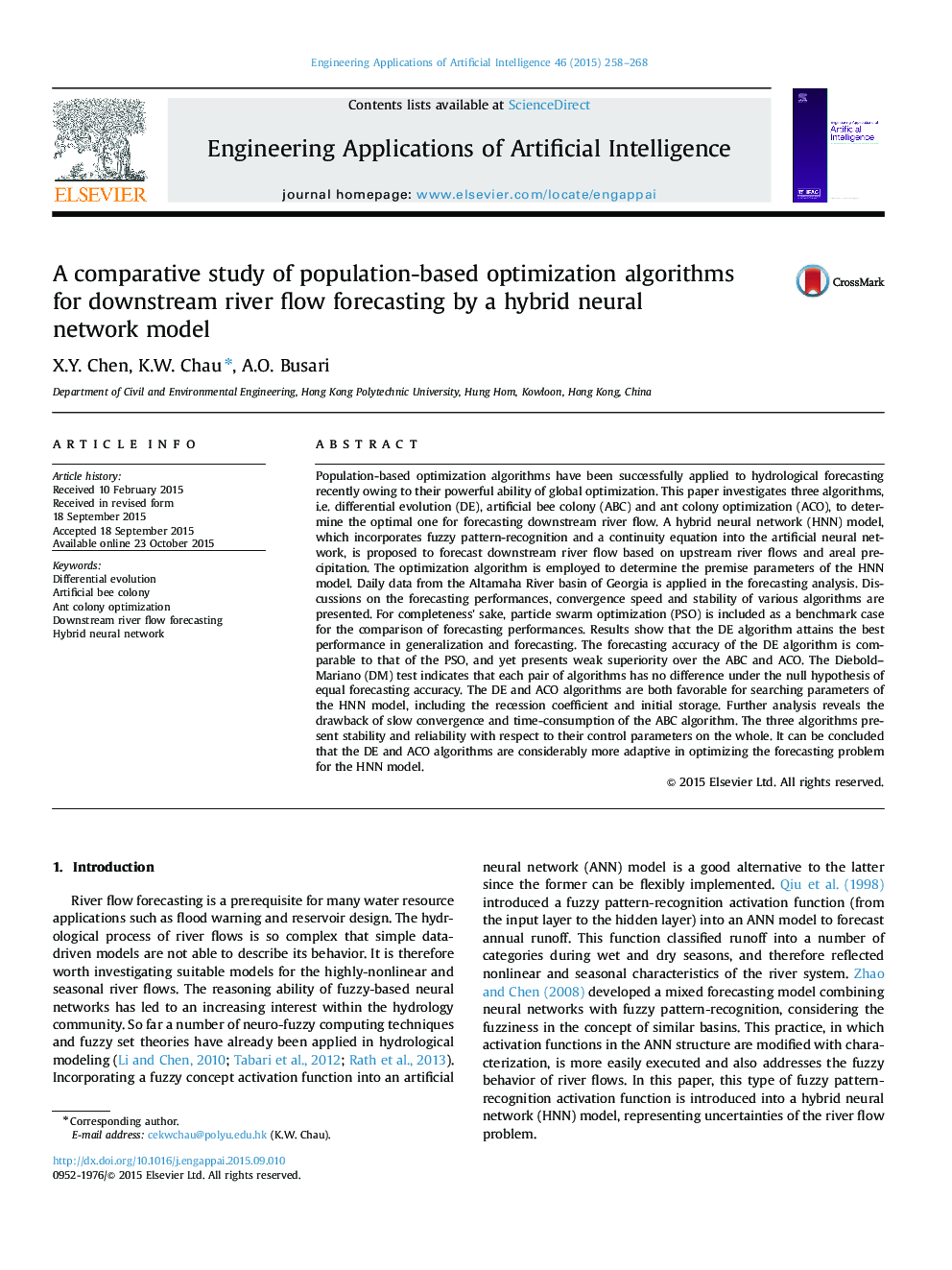| کد مقاله | کد نشریه | سال انتشار | مقاله انگلیسی | نسخه تمام متن |
|---|---|---|---|---|
| 380275 | 1437433 | 2015 | 11 صفحه PDF | دانلود رایگان |
• Comparison of performances of population-based optimization algorithms in forecasting downstream river flow.
• Differential evolution (DE), artificial bee colony and ant colony optimization (ACO).
• Particle swarm optimization is included as a benchmark comparison for forecasting performances.
• Hybrid neural network (HNN) model incorporating fuzzy pattern-recognition and continuity equation.
• DE and ACO algorithms are considerably more adaptive in optimizing the forecasting problem for the HNN model.
Population-based optimization algorithms have been successfully applied to hydrological forecasting recently owing to their powerful ability of global optimization. This paper investigates three algorithms, i.e. differential evolution (DE), artificial bee colony (ABC) and ant colony optimization (ACO), to determine the optimal one for forecasting downstream river flow. A hybrid neural network (HNN) model, which incorporates fuzzy pattern-recognition and a continuity equation into the artificial neural network, is proposed to forecast downstream river flow based on upstream river flows and areal precipitation. The optimization algorithm is employed to determine the premise parameters of the HNN model. Daily data from the Altamaha River basin of Georgia is applied in the forecasting analysis. Discussions on the forecasting performances, convergence speed and stability of various algorithms are presented. For completeness׳ sake, particle swarm optimization (PSO) is included as a benchmark case for the comparison of forecasting performances. Results show that the DE algorithm attains the best performance in generalization and forecasting. The forecasting accuracy of the DE algorithm is comparable to that of the PSO, and yet presents weak superiority over the ABC and ACO. The Diebold–Mariano (DM) test indicates that each pair of algorithms has no difference under the null hypothesis of equal forecasting accuracy. The DE and ACO algorithms are both favorable for searching parameters of the HNN model, including the recession coefficient and initial storage. Further analysis reveals the drawback of slow convergence and time-consumption of the ABC algorithm. The three algorithms present stability and reliability with respect to their control parameters on the whole. It can be concluded that the DE and ACO algorithms are considerably more adaptive in optimizing the forecasting problem for the HNN model.
Journal: Engineering Applications of Artificial Intelligence - Volume 46, Part A, November 2015, Pages 258–268
